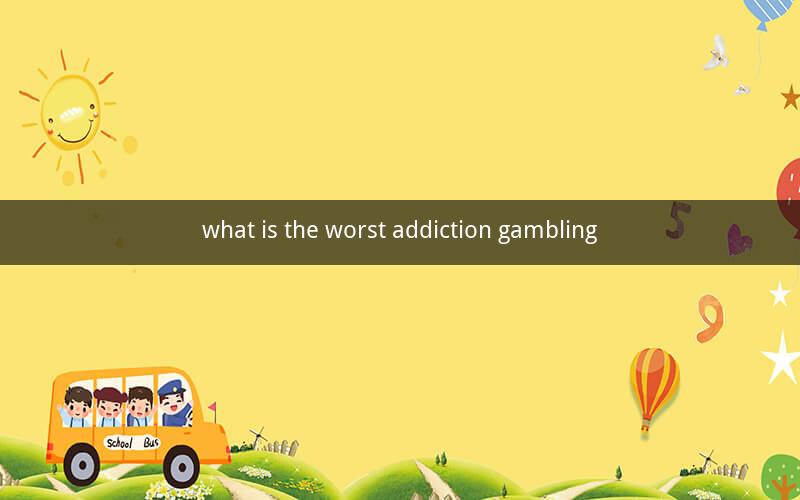
Table of Contents
1. Introduction to Gambling
2. Understanding Addiction
3. The Dangers of Gambling Addiction
- Financial Consequences
- Psychological Impact
- Social and Family Struggles
4. Symptoms and Signs of Gambling Addiction
5. Causes of Gambling Addiction
- Genetic Factors
- Environmental Influences
- Psychological Factors
6. Treatment and Recovery from Gambling Addiction
- Professional Help
- Support Groups
- Self-Help Strategies
7. Prevention and Education
- Responsible Gambling
- Age Restrictions
- Community Programs
8. Conclusion
1. Introduction to Gambling
Gambling, in its simplest form, involves betting something of value on the outcome of an event. It can take many different forms, including casinos, sports betting, lottery games, and online gambling. While some people enjoy gambling as a form of entertainment, for others, it can become an all-consuming addiction that has devastating consequences.
2. Understanding Addiction
Addiction is a complex condition characterized by compulsive engagement in rewarding stimuli despite adverse consequences. When it comes to gambling, the reward comes from the potential to win money and the thrill of the game itself. However, for those with a gambling addiction, this pursuit can become an obsession, leading to significant negative consequences in various aspects of their lives.
3. The Dangers of Gambling Addiction
Gambling addiction can have a profound impact on individuals, their families, and society as a whole. Some of the most common dangers associated with this addiction include:
- Financial Consequences: Gambling addicts often go to great lengths to finance their addiction, leading to financial ruin, debt, and even bankruptcy.
- Psychological Impact: The psychological effects of gambling addiction can be severe, including anxiety, depression, and a sense of helplessness.
- Social and Family Struggles: Relationships with loved ones can suffer due to the emotional and financial turmoil caused by gambling addiction.
4. Symptoms and Signs of Gambling Addiction
Recognizing the signs of gambling addiction is crucial for those seeking help or those concerned about someone they know. Common symptoms include:
- Preoccupation with gambling: Spending a significant amount of time thinking about gambling, planning the next bet, or reliving past wins or losses.
- Compulsive betting: The inability to control or stop gambling, despite negative consequences.
- Lying or concealing gambling: Hiding the extent of gambling activities from friends and family.
- Escalating gambling: Increasing the amount of money and time spent on gambling in an attempt to win back lost money.
5. Causes of Gambling Addiction
Several factors can contribute to the development of a gambling addiction, including:
- Genetic Factors: Some research suggests that genetic predisposition plays a role in the development of gambling addiction.
- Environmental Influences: Growing up in a family where gambling is prevalent or having access to gambling opportunities can increase the risk of addiction.
- Psychological Factors: Individuals with certain personality traits, such as impulsivity and thrill-seeking behavior, may be more susceptible to gambling addiction.
6. Treatment and Recovery from Gambling Addiction
Treatment for gambling addiction involves a combination of approaches, including:
- Professional Help: Therapy, counseling, and medication can help individuals manage their addiction and develop coping strategies.
- Support Groups: Joining a support group, such as Gamblers Anonymous, can provide individuals with a sense of community and a support system.
- Self-Help Strategies: Engaging in self-help activities, such as mindfulness and exercise, can also help individuals manage their addiction.
7. Prevention and Education
Preventing gambling addiction begins with education and awareness. Some strategies include:
- Responsible Gambling: Promoting responsible gambling practices, such as setting limits on time and money spent on gambling.
- Age Restrictions: Implementing age restrictions to prevent underage gambling.
- Community Programs: Providing community programs that focus on gambling education and support.
8. Conclusion
Gambling addiction is a serious and often misunderstood condition that can have devastating consequences for individuals and their loved ones. Understanding the dangers of gambling addiction, recognizing the signs, and seeking help are essential steps in overcoming this challenging problem.
10 Questions and Answers
Question 1: What are the financial consequences of gambling addiction?
Answer: The financial consequences of gambling addiction can be severe, including debt, bankruptcy, and financial ruin.
Question 2: How does gambling addiction affect a person's mental health?
Answer: Gambling addiction can lead to various mental health issues, such as anxiety, depression, and a sense of helplessness.
Question 3: What are the signs of gambling addiction?
Answer: Signs of gambling addiction include preoccupation with gambling, compulsive betting, lying or concealing gambling activities, and escalating gambling.
Question 4: Can genetic factors contribute to gambling addiction?
Answer: Yes, some research suggests that genetic predisposition plays a role in the development of gambling addiction.
Question 5: What treatment options are available for gambling addiction?
Answer: Treatment options for gambling addiction include professional help, support groups, and self-help strategies.
Question 6: How can responsible gambling be promoted?
Answer: Responsible gambling can be promoted by setting limits on time and money spent on gambling and implementing age restrictions.
Question 7: What role do support groups play in gambling addiction recovery?
Answer: Support groups, such as Gamblers Anonymous, provide individuals with a sense of community and a support system to help them manage their addiction.
Question 8: How can community programs help prevent gambling addiction?
Answer: Community programs can help prevent gambling addiction by providing gambling education and support to individuals and their families.
Question 9: Can medication help treat gambling addiction?
Answer: While medication may not directly treat gambling addiction, it can help manage some of the psychological symptoms associated with the condition.
Question 10: What is the most important step in overcoming gambling addiction?
Answer: The most important step in overcoming gambling addiction is seeking help and recognizing the need for change.